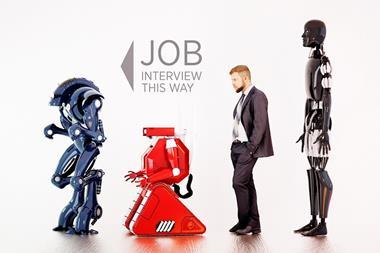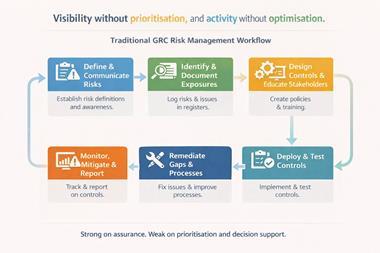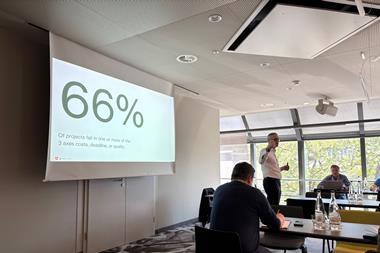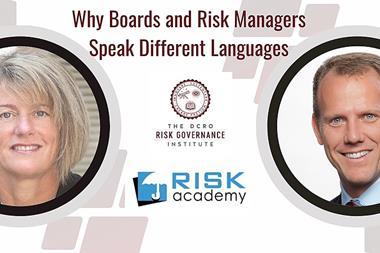Luke Johnson, entrepreneur and chairman of Belgo restaurant group, recently wrote to investment fund managers, suggesting that companies without an e-commerce strategy could be in breach of best corporate governance standards. Martin Rayfield suggests that the situation is not so clear cut.
E-commerce is a very fast moving area that companies have to address - and it could certainly be a complete threat to many companies if they don't address it in the right way. However, that's equally true of other things. Your e-commerce strategy is part of a wider picture. If you don't have the right business model, you run the risk of falling behind competitors and quickly losing competitive advantage.
E-commerce has grabbed the headlines recently but, in some cases, it's an evolution of what happened previously. This is particularly true where companies use it as a way of dealing business to business (B2B).
Many companies have already adopted the partnership approach with their suppliers with "just in time" supplies as part of that. They used electronic data interchange (EDI) as a way of cutting down duplication of documentation - and B2B via the internet is a logical extension of that. So you could say that these companies have simply evolved their existing electronic strategy into an e-commerce model.
However, some B2B suppliers have taken a very pro-active approach. Take General Electric (GE), headed by Jack Welch, which produces components that, in many cases, are embedded within the supply chain well before the end product is delivered. Welch told his managers that they had to have an e-commerce strategy - and the best way to devise this was to employ a young person to sit down with them every week for two hours and show them how the internet works.
Welch recognised that managers are good at managing their business - and e-commerce is just one aspect of their business they need to understand. As a result, GE has developed an internet strategy for what some of us would consider are fairly unlikely products, certainly not the consumer goods and services most often associated with e-commerce.
In B2B, developing an e-commerce strategy often involves a new way of thinking. It's an issue of company culture. And it has to take account of the key issues in company to company trading. Price, quality, timeliness and ancillary services are all important - and e-commerce is only valuable if it contributes to some or all of these.
Your public face and B2C
Of course, e-commerce can sit in a number of different positions within an organisation Your website can be the way that you provide your customers and others with information, or you may trade with consumers through the internet (B2C). Some companies have been very slow to address it - and these are not just the more traditional manufacturing industries that you might expect. Failure to move quickly can result in a significant loss of market share, often in sectors where, once you lose a customer, you lose them for good.
Banks are a good example of this. If you bank with a high street bank and you don't move out of town, you'll probably stay with that bank forever. Even if you do move, it's more than likely that you shift to another branch of the same bank. But e-banking makes branch locations irrelevant. In fact, a bank doesn't have to have any bricks and mortar anywhere. The traditional high street banks were slow to respond to this, with the result that companies like Egg have taken a fantastic leap forward and overtaken their established competitors in a relatively short time.
The ability provided by the internet to establish a national - and international - business quickly and cost-effectively (ie without investing in outlets or branches) highlights a message that goes wider than just the e-commerce arena. If you serve your customers well, they will stay with you. Once you lose them, it is very unlikely they will come back.
Is it a governance issue?
In a recent workshop that we held with a client, it was not until the end of our six hour meeting that the question of e-commerce came up. But even though it was the last thing on the agenda, I wouldn't say that that company was neglecting its corporate governance responsibilities or, indeed, that it
didn't have an e-commerce strategy. E-commerce simply didn't take priority compared to the other issues it was dealing with, and it was competing quite adequately in an industry where e-commerce has made little inroads.
Corporate governance involves identifying risk, controlling the environment in which it sits and embedding continuous monitoring and updating processes. If e-commerce poses a significant risk, such as erosion of market share by a competitor, you should have a policy as to what to do about it. If the risk is not significant, you don't need to do so. E-commerce is just one of the processes that you must consider adequately, remembering the different levels ranging from just a website with information to electronic trading, and making sure that you're distinguishing between these.
Getting there
Some people view e-commerce as a necessary evil. Others see it as adding value. Whatever your view, you may not necessarily know how to implement it and how it will change your business. Often too, in a large and diffuse organisation, it's difficult to put together a cohesive plan. In some sectors, there's the added pressure that the business which gets it right first will win.
Many companies are following the GE example, recruiting internet literate - which almost inevitably means young - people to help them out. Close on the heels of the Y2K boom, consultancy firms are
once again having a field day, though with a new generation of advisers. Such is the speed of the electronic revolution that most of the Y2K consultants are probably pensioned off by now and the new e-commerce breed is barely out of nappies!
E-commerce can be good or scary news. However, it's no different from any other business process. All companies need to think about their business model - whether it suits them as a business and the environment in which they work. It is the way that businesses design their business model, both to use it and maximise its value, that will govern whether they survive and prosper - or not. With e-commerce, as with most other business processes, if you stand still, you will go backwards.
In January 2000, Marsh & McLennan Companies (MMC) launched MMC Enterprise Risk management to assist clients looking at the inter-relationship and correlation between risks to develop an integrated risk strategy.
--



















